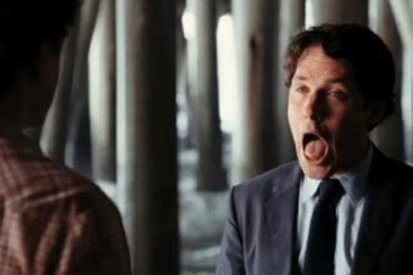
Does the ASA really think the internet is controlled by a few big media owners - like TV?
When something is released online the potential 'damage' has already happened, as you can't take it 'off air' like you can on TV. Yes, it's possible to remove '' from Yahoo!, but I'll be very surprised if it hasn't already spread across the web with all the attention it's getting. This in turn means that it will turn up on numerous 'long-tail' sites gathering further momentum. The autonomy of the internet has shifted the power from the broadcasters/publishers to the users - hence they make or break campaigns and decide what to see and where, when they click, blog, share and chat about a campaign.
The organic nature of the internet makes it uncontrollable, (unless you want to live in China or Iran) and the ASA's move leaves me wondering how many teenagers are in their bedrooms now busy making spoofs of this trailer. I can only imagine that the attention this is getting, because of this controversial intervention will make more 'young people' search for it.
The fact is that the internet was built on porn and a huge percentage of bandwidth is still dedicated to it. Incredibly, some people do actually watch all this material - believe it or not. What's more, with YouTube now being the second largest search engine in the world and the primary search engine for young people, material that is far more offensive is reaching young people constantly.
All we can do is try to place content that is not suitable for children in the right online environments based on site demographics and behaviour. In fact the promoters of ‘I love you man' did a good job in picking Yahoo!, which has a user base that is very predominantly aged over 18. But as with any other online content, if teenagers want to find porn - or an offensive movie trailer - then they will, and it will spread like 'wildfire' beyond Yahoo!, as that's the whole nature of modern social media.
The ASA needs to realise the facts of the world we live in rather than try to repair things 'after the fact'. Perhaps there is a need for advertisers and the ASA to communicate more with each other before ads such as this break, because trying to ban it afterwards is just creating more buzz and attention around it.


.jpg)


.jpg)